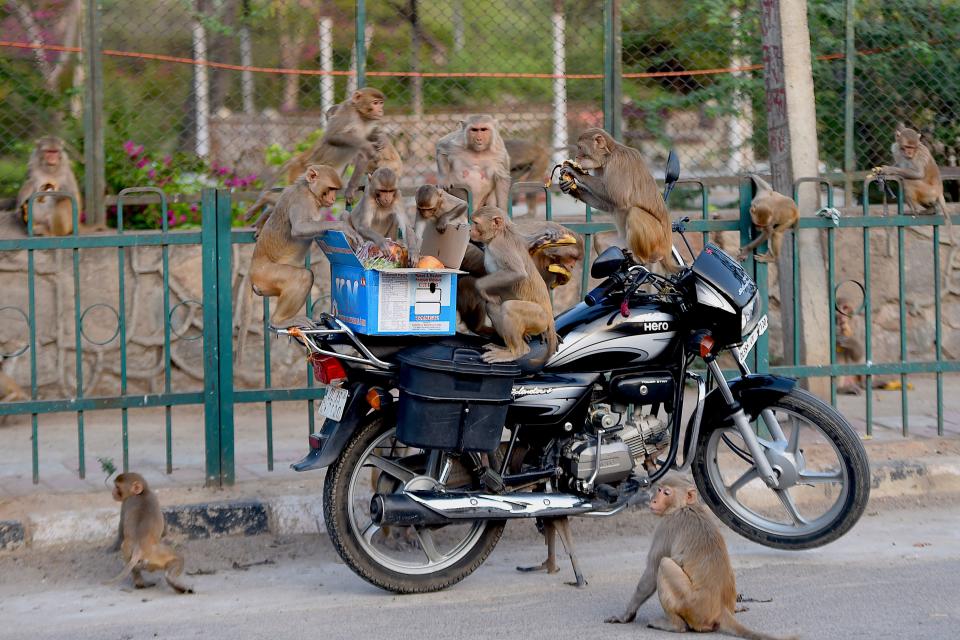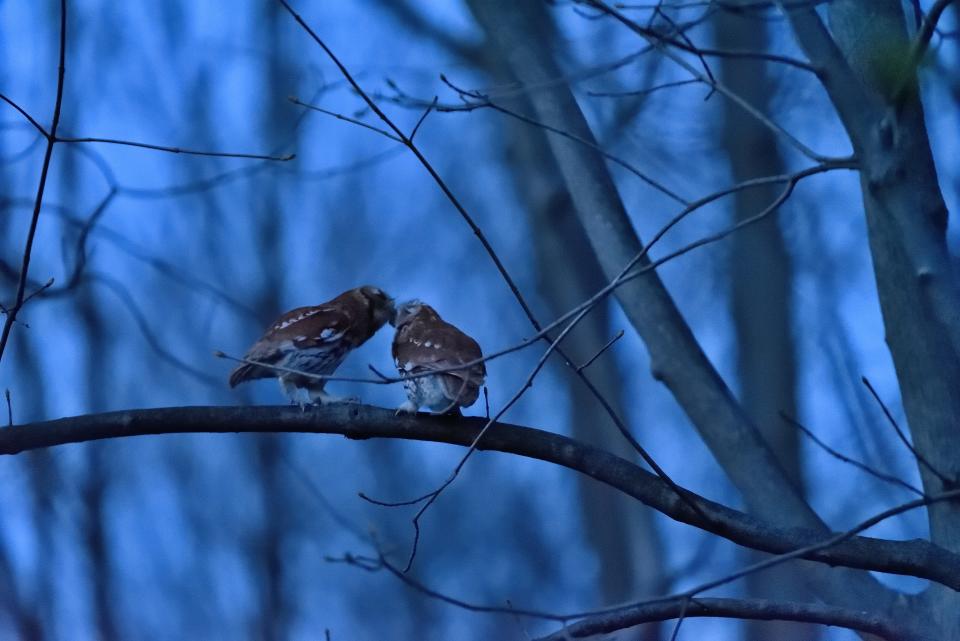Animals take to city streets during coronavirus pandemic: 'Life finds a way'
Animals seem to be taking over city streets as humans are locked away during the coronavirus pandemic; mountain lions walking through downtown Boulder, Colorado, monkeys and horses flooding residential neighborhoods in parts of India, swarms of geese overrunning parking lots in Columbus, Ohio and rats taking to the streets in broad daylight in New Orleans.
“Is nature getting a little bit of a break in some ways and is that good for it? And is it responding in some way? The short answer is yes,” says Carl Safina, ecologist and author of Becoming Wild: How Animal Cultures Raise Families, Create Beauty and Achieve Peace.

“That most resonant line from Jurassic Park always comes to mind. ‘Life finds a way.’ Life is the process of going against the grain of dying, right? Life lives.”
And life, it turns out, is hungry.
“What I anticipate might be happening is because restaurants and bars are shut down, [places] that were generating some artificial or man-made food sources… I would suspect that they are looking for food,” says Gary Comer, a wildlife management supervisor in Columbus, Ohio.
New Orleans Mayor LaToya Cantrell says the rats are going “crazy” in the French Quarter during the pandemic. One witness claimed to see up to 30 rats in the street, feasting.
“These rats that are in our cities, they've been living on garbage of all different types for decades and decades,” says Robert Corrigan, a rodentologist – or scientist that studies city rodent populations. He says city rats are disoriented and desperate.
“What's happened, is people are seeing rats 24/7. Someone that looks out the window and all of a sudden there's a rat in the street that they'd never seen before.”
He says, if rats don’t get food, they’ll begin fighting with each other to the death – and even cannibalizing each other.
It paints a different picture than the stories that first circulated at the start of the stay-at-home orders of dolphins finding safe harbor in the cleaner canals of Venice, or elephants getting drunk and passing out in fields in China – both stories which have since been debunked.
In the U.K., there are reports from seaside towns that seagulls are growing more aggressive in search of food. And in Thailand, hungry monkeys that are normally fed by tourists are growing violent.
Coronavirus: Monkeys from rival gangs fight over food in Thailand. Viral video - Trending News News https://t.co/nLOPHOJi6w
— douglas (@firechaser1) April 8, 2020
“An animal requires nutrition for everything, so when that's deprived, it's not going to be pretty,” says Corrigan.
It’s one reason why residents in Boulder, Colorado have recently spotted groups of mountain lions walking down city streets. But it’s not just about food. It’s also spring, which means it’s mating season for many species.
Mountain lions have been spotted in Boulder, Colorado:https://t.co/CfPNJS3Ov0
— Angela Ledgerwood (@angledge) April 6, 2020
“Coyotes are active in breeding seasons,” says Jason Clay, public information officer for Colorado Parks and Wildlife. “It’s too early to make any inferences on whether this behavior has changed, so I can’t definitely draw conclusions that wildlife behavior has changed because of coronavirus.”
Coyote running down the street in Chicago, it’s the Wild West out here now #Quarantine #StayHomeStaySafe pic.twitter.com/G7CTypjXhp
— Brian Roe (@BrianRoeComedy) March 24, 2020
“COVID-19 doesn't mean anything to wild animals,” says Comer, “Nature is still doing its thing. You know, the birds are initiating their nests and we're probably six weeks away from white-tailed deer dropping fawns in a big, big way.”
But zookeepers at the Ocean Park Zoo in Hong Kong believe the pandemic has most definitely changed the behavior of two of their pandas Ying Ying and Le Le. Zookeepers have been trying to get the pair to mate for over 10 years, to no avail. But when the zoo shut down due to coronavirus, the pandas finally did. Zookeepers there say they are thrilled since there’s a higher rate of pregnancy for pandas who mate naturally, versus artificial insemination.
Giant pandas Ying Ying and Le Le succeeded in a natural mating, @Ocean_Park has announced. "We hope to bear wonderful pregnancy news to Hong Kongers this year and make further contributions to the conservation of this vulnerable species," the park's Michael Boos said. pic.twitter.com/yJCpCdVHeK
— Hong Kong Free Press (@HongKongFP) April 6, 2020
Safina says just as animals are taking advantage of the lessening of human activity – so should we.
“I'm really geared to watching animals. I love animals, and I am a naturalist by profession. Right? But it's been very striking to me to see the disparity between all the humans, including myself, are doing things so differently right now and feeling so anxious right now. And walking outside and simply realizing that the birds and the small mammals that are around us where we live are going about their lives in a normal way-- This is not any kind of crisis for them. It's only a crisis for us,” he says.
He says the pandemic resulted in a canceled book tour, which has given him time to watch the slow ritual of two screech owls in the backyard begin to mate.

“Normally I would miss most of this. But because my calendar got emptied out, I can go out every night and watch owls develop a relationship and move slowly into a breeding season, and that's an enormously cool thing. You know?”
For the latest coronavirus news and updates, follow along at https://news.yahoo.com/coronavirus. According to experts, people over 60 and those who are immunocompromised continue to be the most at risk. If you have questions, please reference the CDC and WHO’s resource guides.
How to maintain your physical and mental health during the pandemic
Taking care of a loved one with COVID-19? Here’s how to stay healthy
Q&A with Dr. Kavita Patel: How to keep your family safe and maintain your mental health
Read more from Yahoo Lifestyle
Drive-by Easter Bunny visits are keeping holiday spirits up during the quarantine
Engineers say 'incredible' mothers are donating breast pumps to use as coronavirus ventilators
Want daily pop culture news delivered to your inbox? Sign up here for Yahoo Entertainment & Lifestyle's newsletter.

